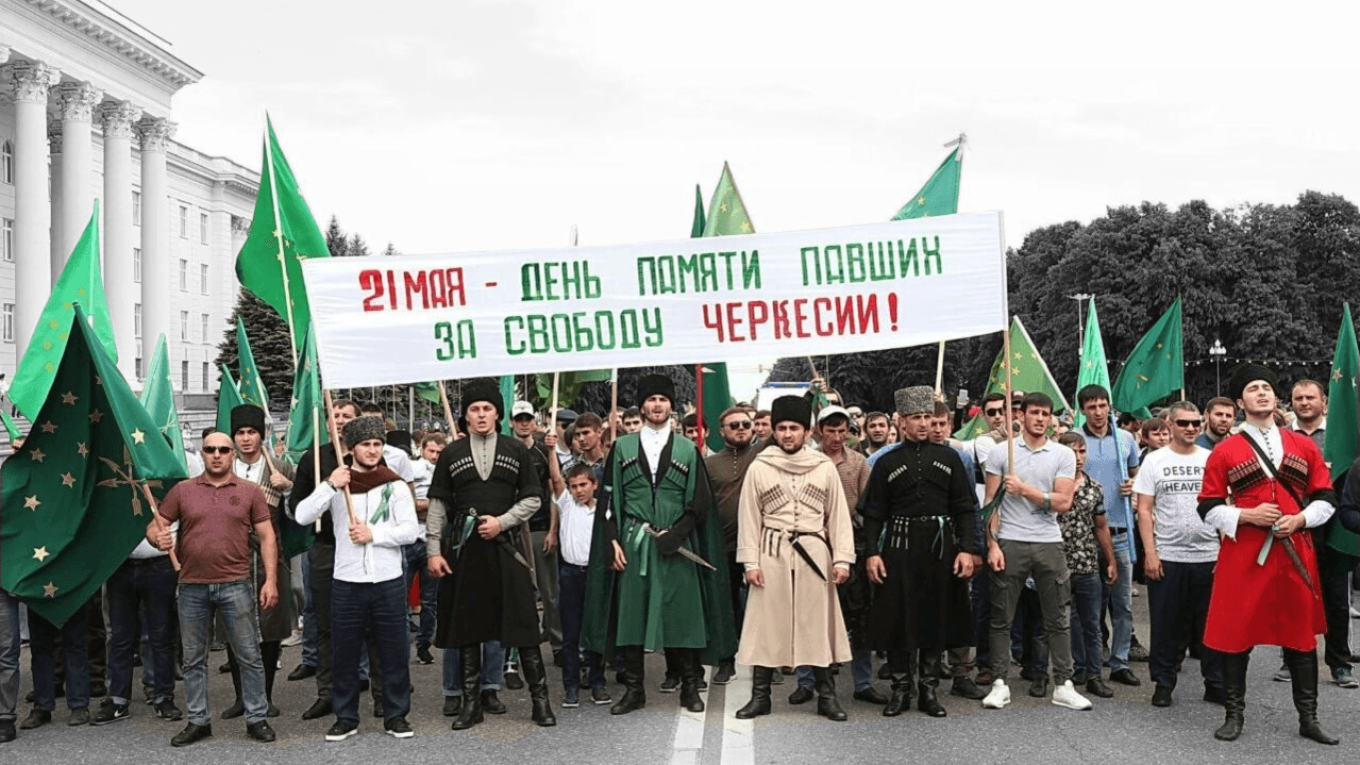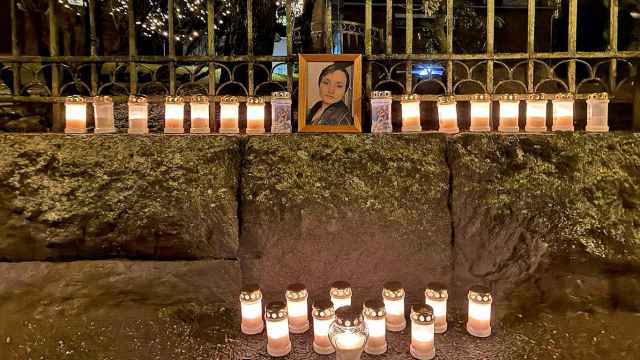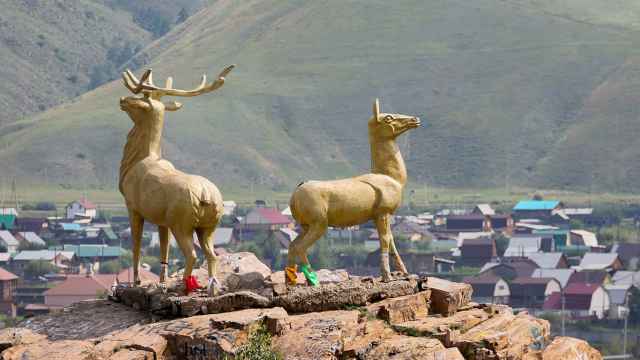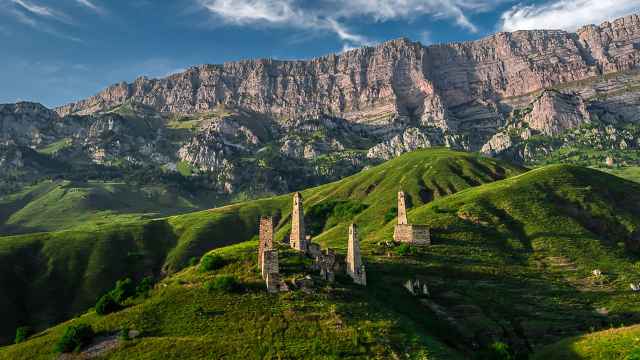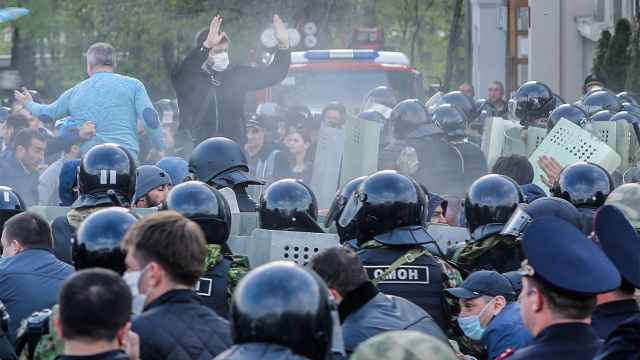Hello and welcome to Regions Calling, The Moscow Times’ weekly newsletter helping you understand the key trends and events shaping life and politics in Russia’s regions.
In this edition, MT’s Indigenous special correspondent Leyla Latypova zooms in on the events surrounding the Circassian Day of Mourning marked by both the vast Circassian diaspora and the community that remains in Russia.
Subscribe here so you never miss an issue.
On May 21, more than 1,000 people walked through central Nalchik, the capital of the North Caucasus republic of Kabardino-Balkaria, to mark 161 years since the end of the Russo-Circassian War and pay respect to its victims.
Carrying Circassian flags and wearing traditional clothes, the crowd walked along the central Lenin Avenue toward the Tree of Life, a memorial to victims of the 19th-century Russian invasion of the North Caucasus, where they were joined by 1,000 other people for commemorative events, according to regional news outlet Caucasian Knot.
Straddling the 18th and 19th centuries, the Russo-Circassian War was a defining moment in the history of the Circassian community. By the end of the 101-year-long conflict, more than 90% of the entire Circassian population was systematically killed, the Russian Empire annexed Circassian lands and more than 500,000 Circassians were forcibly deported to the Ottoman Empire.
Only 50,000 Circassians — or about 5% of the pre-war population — remained on their Indigenous lands following these tragic events, which Circassians call Tsitsekun.
“For us, this is not just the past. These events are still alive in our memory,” Circassian activist Martin Kochesoko wrote in an opinion column for news outlet From the Republics on May 21.
“The genocide became a watershed moment between the ‘before’ and the ‘after.’ A people who…lived in unity on their land for thousands of years, creating a unique culture and language, found themselves torn apart and scattered across the world,” Kochesoko explained.
Though historians agree that the Russian imperial army waged a deliberate campaign aimed at erasing the ethnic group, the Russian government has never recognized the Circassian genocide, even during the relative democratic thaw of the Yeltsin era.
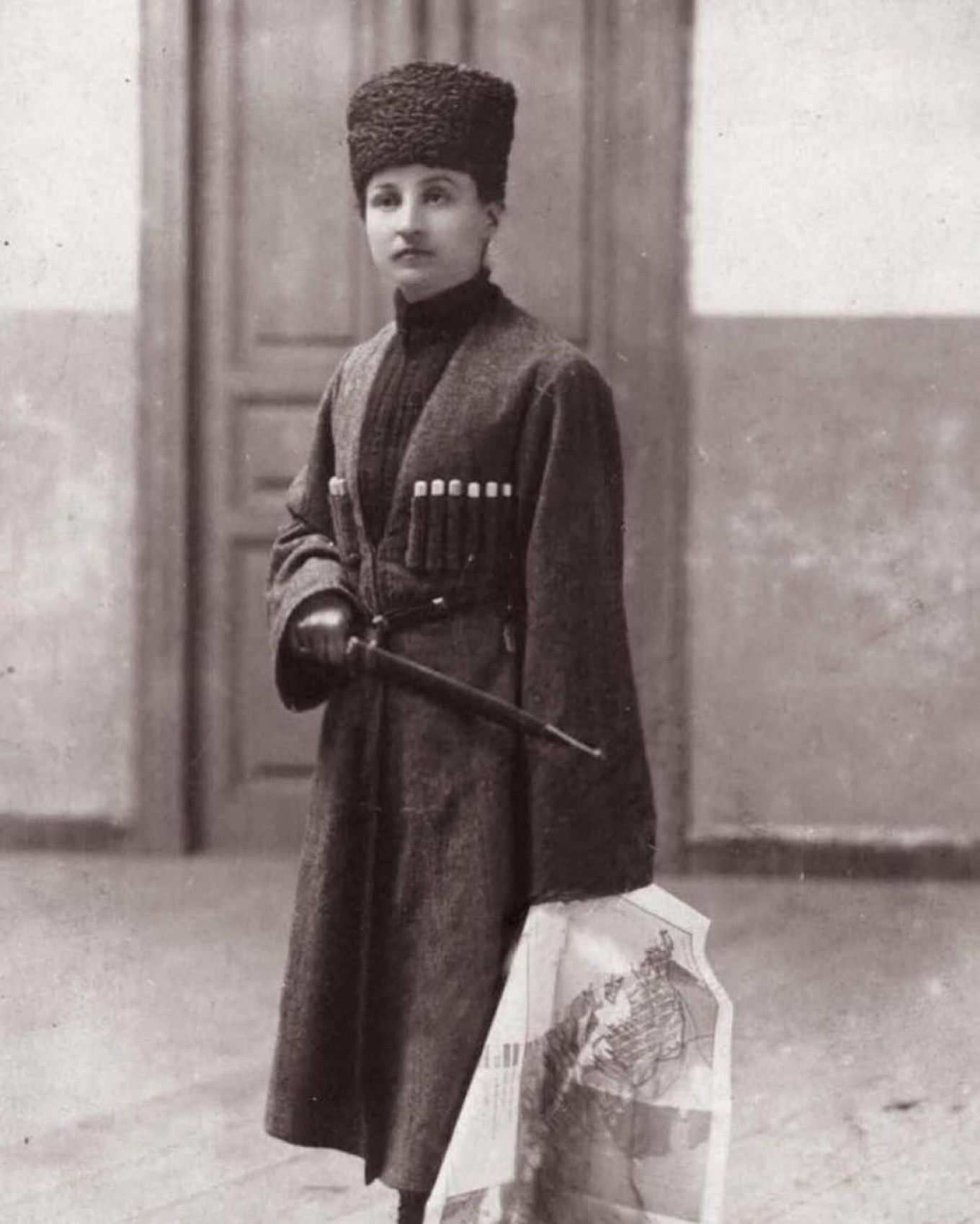
Nevertheless, regional parliaments in the republics of Adygea and Kabardino-Balkaria moved to recognize the genocide on the local level in 1992, followed by Georgia in 2011 and Ukraine earlier this year.
Despite the Kremlin’s dismissive attitude, every year since 1995, a column of thousands of people led by mounted horsemen in traditional Circassian costume has marched through central Nalchik to commemorate victims of the Russian invasion of their land. That is, until 2020, when local authorities first banned the procession, citing Covid-19 restrictions.
As with public demonstrations elsewhere in the country, the ban on the procession continued far beyond the pandemic, though at least 500 people marched in defiance of official orders in 2022.
This year’s rally, too, was held in the absence of an official greenlight, even though subsequent commemorations at the Tree of Life memorial were inaugurated with a speech by Kabardino-Balkaria’s Culture Minister Mukhadin Kumakhov.
Though police did not proactively block the rally on the day, Circassian rights activists sounded the alarm on Friday over the arrests of eight prominent members of the community on charges of “participation in an unsanctioned gathering.”
Marina Kalmykova, Khusein Gugov, Zuber Ivazov, Timur Nakhushev, Kazbek Mamikov, Bashir Yerokov, Idar Tsipinov and Beslan Gedgaforov were ordered to spend from three to 10 days in administrative detention, local media reported.
Kabardino-Balkaria’s flagship Regional Human Rights Center slammed the arrests as “an attempt to suppress public opinion” and erase “historical self-awareness of citizens.”
“It is time for the authorities to realize that the main initiator and driving force behind the mourning procession on May 21 is the people, who are expressing their desire to preserve historical memory,” the group said in an open letter to Kabardino-Balkaria’s head Kazbek Kokov.
As Valeriy Khatazhukov, the chair of Kabardino-Balkaria’s Regional Human Rights Center, rightly noted, events surrounding May 21 in the Caucasus “undermine local and federal authorities.”
Indeed, 161 years on, memories of Russia’s violent invasion of Circassian lands contradict the Kremlin-propagated myth that Moscow’s imperial expansion was welcomed by Indigenous peoples and gave way to a peaceful, multi-ethnic state.

This latest attempt to silence the Circassian community joins a long list of events commemorating the victims of Russian colonialism that have been deliberately underpublicized, restricted or outright banned by the Kremlin and its regional cronies in recent years, including Memorial Day in Tatarstan and Deportation Remembrance Day in Ingushetia.
But despite the Kremlin’s best efforts to cement its version of history in the collective consciousness, the Circassians’ struggle for historical justice is likely to outlive this dictatorship.
Just look at Syria, where the country’s sizeable Circassian community joined in commemorative events for the first time in history last week, carrying both Circassian and Palestinian flags in a show of solidarity.
“Today, we recognize that the tragedies our ancestors endured over a century ago have found a haunting echo in our new home, Syria. For the past 14 years, as Russia became the backbone of the brutal Assad regime, Syrians have suffered the same patterns of massacre, displacement and repression,” Syrian Circassian activist Celine Kasem told The New Arab at a rally in Damascus.
“With Syria freed from one of the most brutal dictatorships in modern history, we can finally gather, mourn, remember and reconnect — openly and without fear," she added.
A Message from The Moscow Times:
Dear readers,
We are facing unprecedented challenges. Russia's Prosecutor General's Office has designated The Moscow Times as an "undesirable" organization, criminalizing our work and putting our staff at risk of prosecution. This follows our earlier unjust labeling as a "foreign agent."
These actions are direct attempts to silence independent journalism in Russia. The authorities claim our work "discredits the decisions of the Russian leadership." We see things differently: we strive to provide accurate, unbiased reporting on Russia.
We, the journalists of The Moscow Times, refuse to be silenced. But to continue our work, we need your help.
Your support, no matter how small, makes a world of difference. If you can, please support us monthly starting from just $2. It's quick to set up, and every contribution makes a significant impact.
By supporting The Moscow Times, you're defending open, independent journalism in the face of repression. Thank you for standing with us.
Remind me later.



